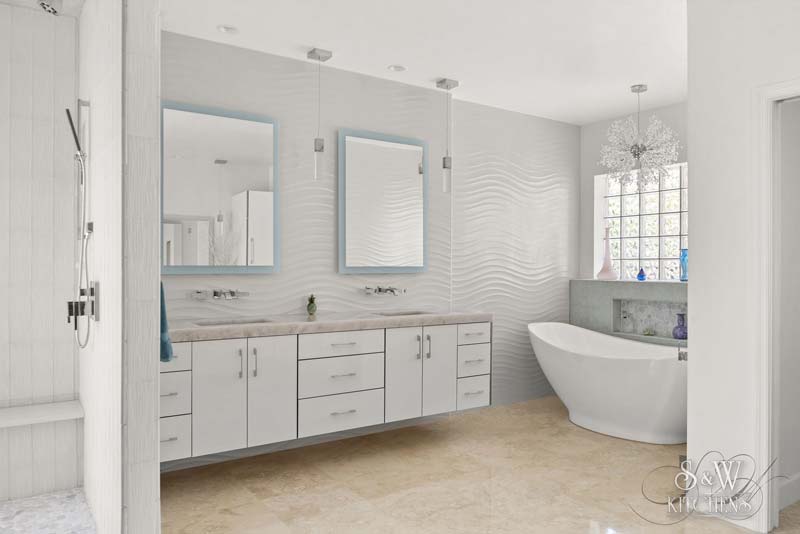Staying on budget throughout your home’s renovation process can be tricky even for money-savvy homeowners. With so many materials and design options to choose from, it’s easy to get carried away and underestimate the total costs of your project. To keep your home renovation on track, follow these tips below so you can stay on budget and get the most out of your home upgrades.

Determine Your Priorities
When considering your kitchen or bathroom project, your renovation options can seem endless. To start your project on the right foot, consider the goals you have for the space and whether the cost can be justified by adding long-term value to your home. Keep your inspirations, and the costs associated with them, when choosing your building materials and designs. Research low-cost alternatives to help you meet your design and inspiration needs and help reduce the cost of the overall project. Knowing what updates must be included in your renovation is a key factor in creating a project plan in line with your budget and preventing a remodeling disaster.
Decide What You Can Afford
Before starting the renovation process, it’s important to understand how your project will impact the rest of your finances. The average cost of a midrange major kitchen remodel is $80,000 in Florida, with homeowners recouping a little over 50 percent of the revalue cost for your home’s overall worth. To determine how much you can afford to spend on your renovation project, the general rule of thumb is to not spend over 20 percent of your home’s overall value on one room.

As you discuss renovation costs with your contractor, be prepared for the total cost of your project budget to increase. Many homeowners don’t realize that they’re responsible for site cleanup or other demolition costs. In order to ensure you’ve got a budget to meet your project needs, create a financial buffer to help prepare for any unexpected costs that may arise in your home renovation project plan.
Know Your Financing Options
Unless you plan to pay for your total renovation costs with cash upfront, you’re most likely going to be financing your renovation. At this stage, there are multiple routes you can take to get your home renovation started. If you’re looking for an option in-house, check out the flexible financing plans we offer.
Another option to consider is a Home Equity Line of Credit, also known as a HELOC loan, which allows you to borrow up to 80 percent of your home’s market value. A HELOC loan is a great option for homeowners with a higher credit score and that intend to finance multiple renovation projects. Using a HELOC loan specifically for home improvements may also qualify the interest of the loan to be tax deductible. If you’re not sure which option is best for your budget, get an informed update on your credit health by learning about the best credit scores for buying a house. Understanding your credit score and the interest rates you can expect to get are great ways to help assess your home financing ability.
Once your project plan, your budget, and your financing considerations are all in place, it’s time to get your project off the ground and get ready to experience the home of your dreams.
